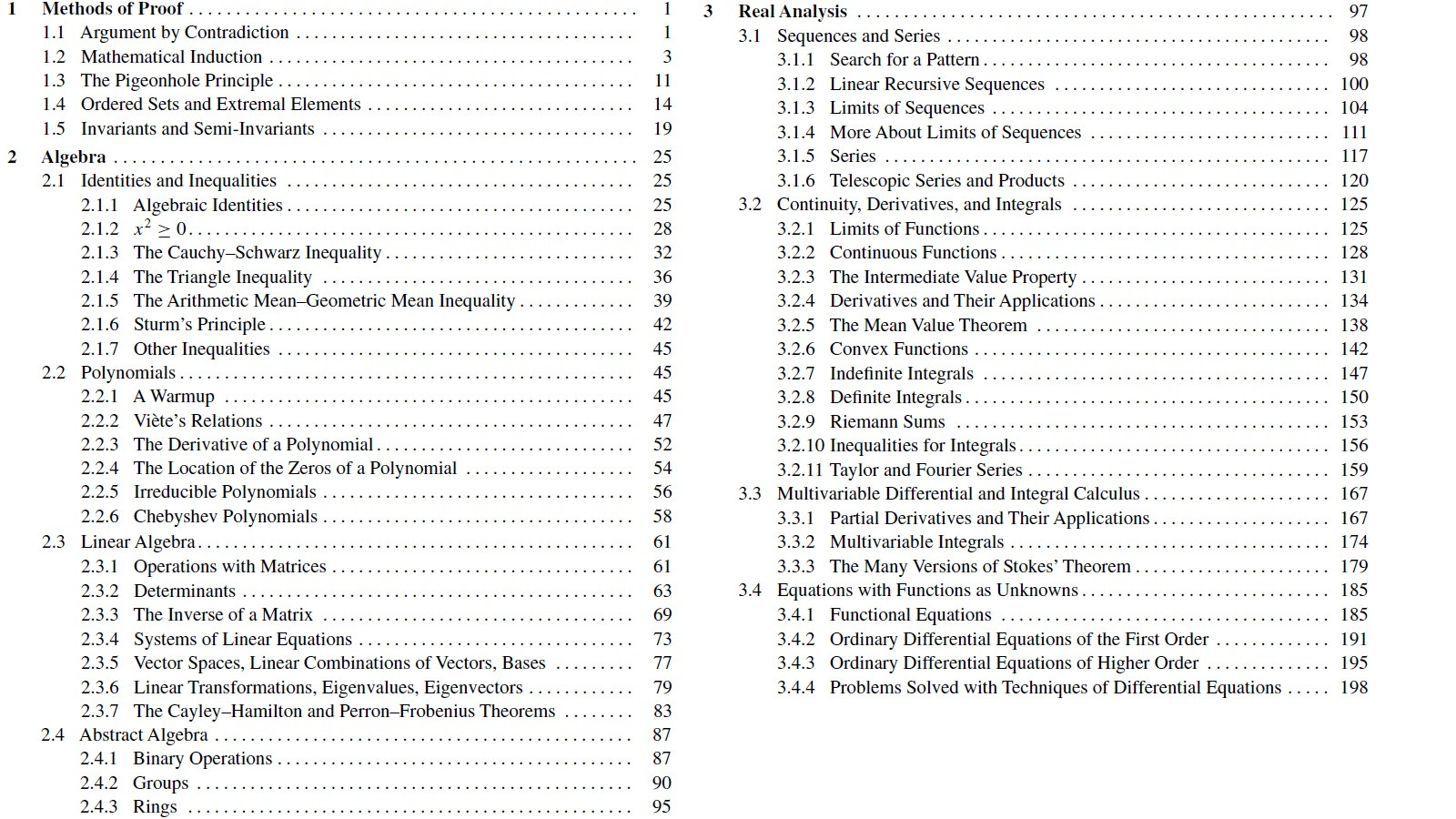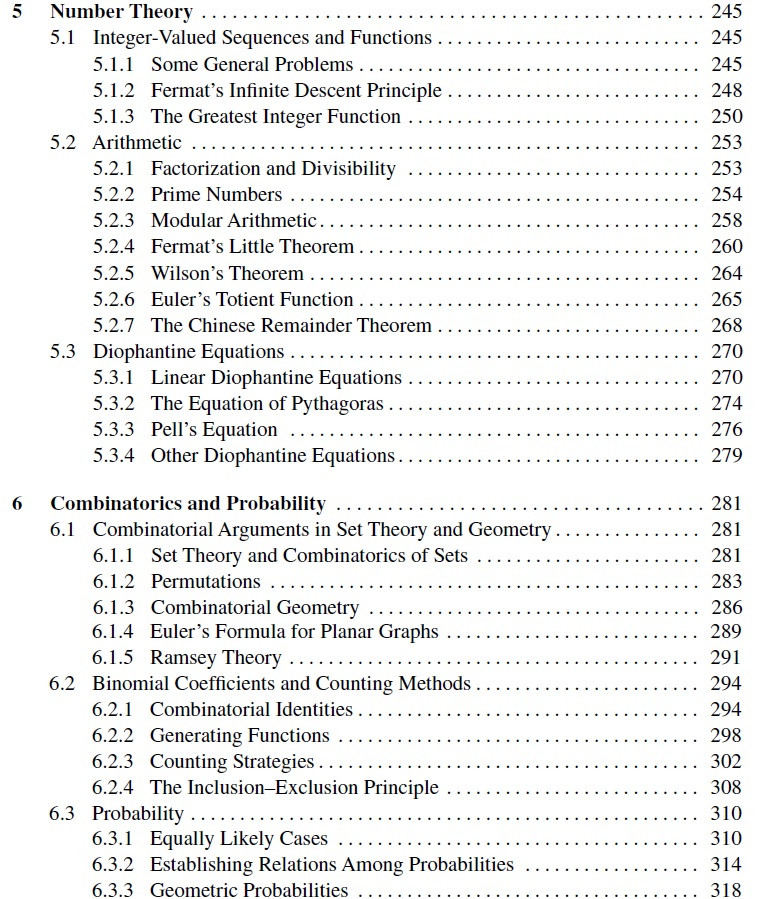I may one day be interested in teaching students who are preparing for, say, the IMO or other math competitions. However, I haven't found a particularly clear statement about exactly what material is on it. I know they contain algebra, geometry, combinatorics, and number theory, but is there any other well-defined subject that is tested in these competitions?
I know there are a number of resources for preparing students and teachers for these competitions, but reading a document that is exclusively about the competition feels too narrow--I'd rather learn the subjects that are tested instead, and then apply that knowledge to teaching the competition material.

